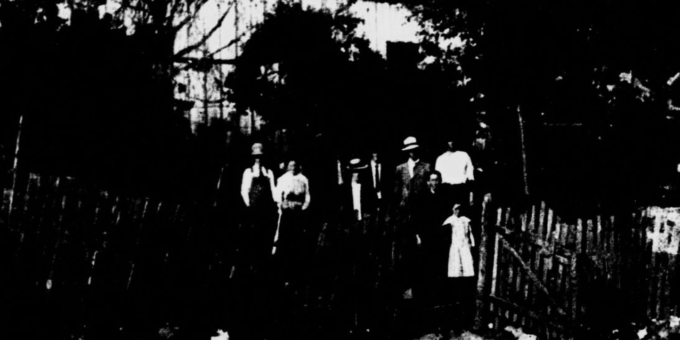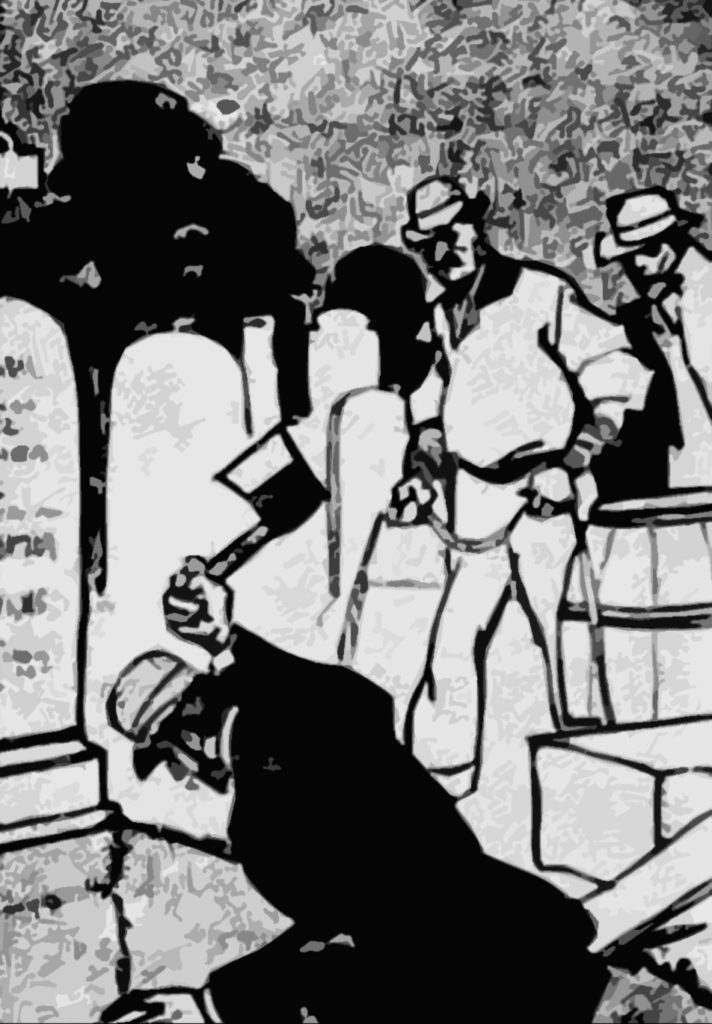
Crossroads have long been a place of spiritual importance for many cultures. They were thought to be the space where the deities and the realm of humans intersected and were seen as places where supernatural forces could be encountered: anything from fairies to ghosts, spirits to shapeshifters, and even demons and angels.
In The Bathhouse at Midnight (Ryan, 1999), we read:
“Crossroads were magic and ‘unclean’ places… Suicides and unidentified corpses were buried there, and… it was one of the favorite places for casting magic spells and practicing various kinds of divination.” (p. 54)
1. Why Suicides, Murderers, and the Unknown were Buried at the Crossroads
The main reason suicides, murderers, and unidentified bodies were buried at the crossroads was to prevent their spirits from finding their way home.
People were scared that the unwanted and those who died by their own hands would seek revenge on their families and neighbors.
To prevent vengeful spirits from haunting the living, they were buried at the crossroads so their spirits would not know which road to take home. [C]

2. Stop the Souls of the Dead
In funerary customs, we find that in Wales, funeral processions would stop at any of the crossroads they came upon and say a prayer. This acknowledgment prevented any troubled souls lingering at the crossroads from troubling the freshly dead corpse. [A]
3. Separation of Lovers
An old superstition from out of Spain tells us that if a pair of lovers accidentally meet up at the crossroads, it signifies an upcoming separation between them. [A]
4. A Witch and the Devil Walked to the Crossroad
In Ukrainian folklore and some parts of Russia, a whirlwind spotted at a crossroad meant that a demon, or the Devil, and a witch were having sex. Christians believed that witches and the Devil formed a sacred pact through sex. [B]

5. Fox Tongue
This rather gruesome charm tells us that if we cut the tongue out of a living fox, it will prevent all manner of disease and illness. However, there is a rather big catch to this charm. If the person with the fox’s tongue ever meets up with a fox at the crossroads, the fox will have its revenge, and that person will surely die. [A]
6. Fat of a White Worm
A Norwegian folk charm tells that:
“If an adult is ill, search is made at the crossroads for the fat of a white worm; if the search is successful, the patient will recover.” [A]

Conclusion
While there is some argument about whether or not superstitions are actual beliefs, most cultures have one or two that their people hold dearly. The six items discussed in this article have various levels of belief attached to them. What are your thoughts on superstitions?
Sources:
[A] Encyclopedia of superstitions, folklore, and the occult sciences of the world. By Cora Linn Daniels. 1903.
[B] The Bathhouse at Midnight: Magic in Russia. By W.F. Ryan. 1999.
[C] The Encyclopedia of Superstitions. By Richard Webster. 2012.

